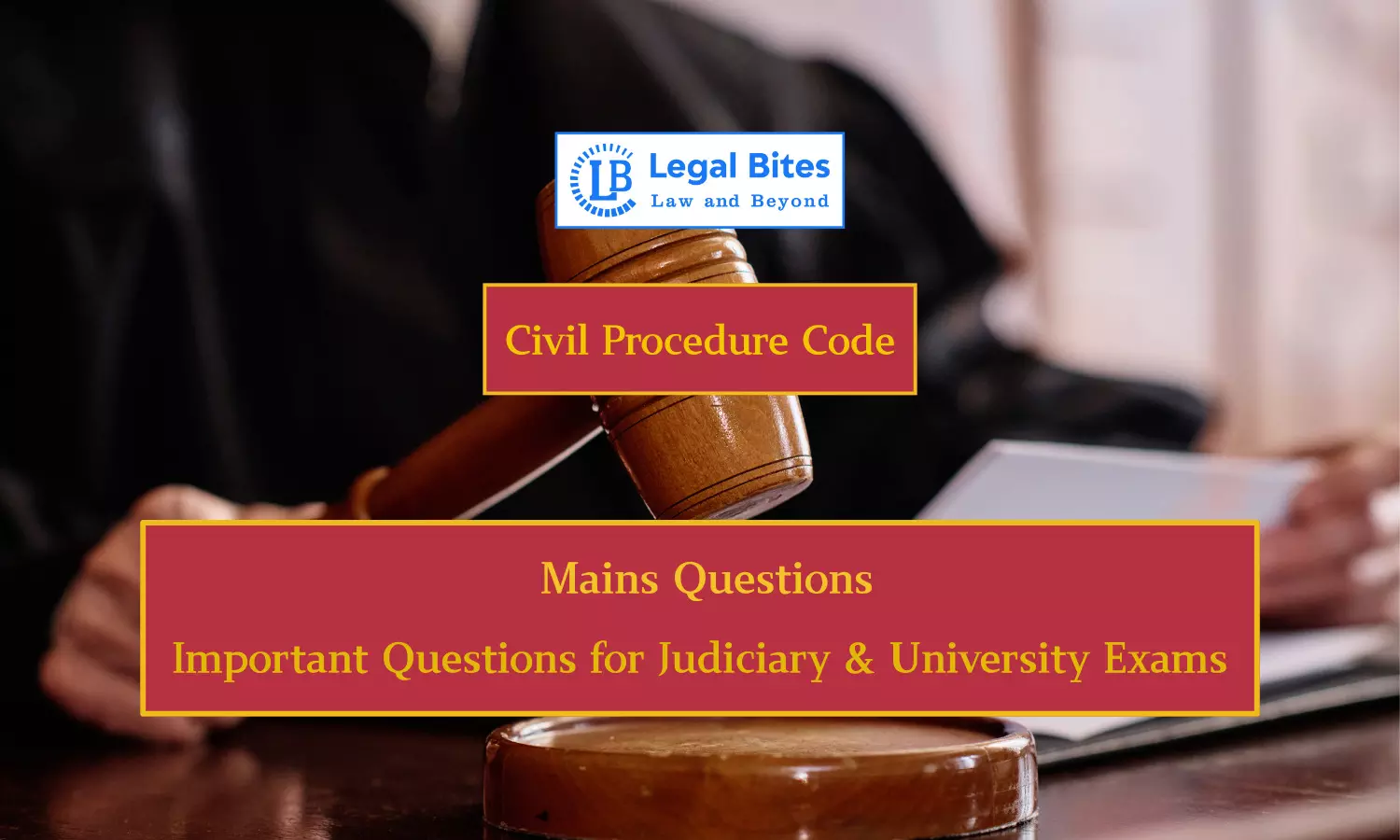Is res judicata a rule of substantive law or a rule of procedure?
Find the answer to the mains question only on Legal Bites.

Question: Is res judicata a rule of substantive law or a rule of procedure? [OJS 2019]Find the answer to the mains question only on Legal Bites. [Is res judicata a rule of substantive law or a rule of procedure?]AnswerRes judicata is primarily a rule of procedure. It is codified under Section 11 of the Code of Civil Procedure (CPC), 1908, which provides that no court shall try any suit or issue that has been directly and substantially in issue in a former suit between the same parties (or...
Question: Is res judicata a rule of substantive law or a rule of procedure? [OJS 2019]
Find the answer to the mains question only on Legal Bites. [Is res judicata a rule of substantive law or a rule of procedure?]
Answer
Res judicata is primarily a rule of procedure. It is codified under Section 11 of the Code of Civil Procedure (CPC), 1908, which provides that no court shall try any suit or issue that has been directly and substantially in issue in a former suit between the same parties (or their privies), and has been finally decided by a court competent to try such subsequent suit.
The doctrine seeks to prevent multiplicity of litigation, preserve the authority of judicial decisions, and promote finality in legal proceedings. In essence, once a competent court has adjudicated a matter conclusively, it cannot be reopened in a new suit.
In Satyadhyan Ghosal v. Deorajin Debi, AIR 1960 SC 941, the Supreme Court held that:
"The principle of res judicata is based on the need of giving finality to judicial decisions. What it says is that once a res is judicata, it shall not be adjudged again."
The Court clarified that res judicata is a rule of procedure but one that serves a very important public policy function—ensuring that there is an end to litigation.
Similarly, in Daryao v. State of U.P., AIR 1961 SC 1457, the Supreme Court emphasised that the rule is founded on considerations of public policy and justice:
"The rule of res judicata is not technical; it is a fundamental principle that finality should attach to the binding decisions of courts of competent jurisdiction."
Although res judicata is procedural in nature, its consequences can affect substantive rights—for instance, by barring a party from pursuing a claim they might otherwise be entitled to. However, the rule itself does not define or determine legal rights, but rather restricts the re-litigation of already adjudicated issues. Therefore, it is rightly considered a procedural safeguard grounded in public policy and judicial economy.
Important Mains Questions Series for Judiciary, APO & University Exams
- CPC Mains Questions Series: Important Questions Part – I of X
- CPC Mains Questions Series: Important Questions Part – II of X
- CPC Mains Questions Series: Important Questions Part – III of X
- CPC Mains Questions Series: Important Questions Part – IV of X
- CPC Mains Questions Series: Important Questions Part – V of X
- CPC Mains Questions Series: Important Questions Part – VI of X
- CPC Mains Questions Series: Important Questions Part – VII of X
- CPC Mains Questions Series: Important Questions Part – VIII of X
- CPC Mains Questions Series: Important Questions Part – IX of X
- CPC Mains Questions Series: Important Questions Part – X of X

Mayank Shekhar
Mayank is an alumnus of the prestigious Faculty of Law, Delhi University. Under his leadership, Legal Bites has been researching and developing resources through blogging, educational resources, competitions, and seminars.
